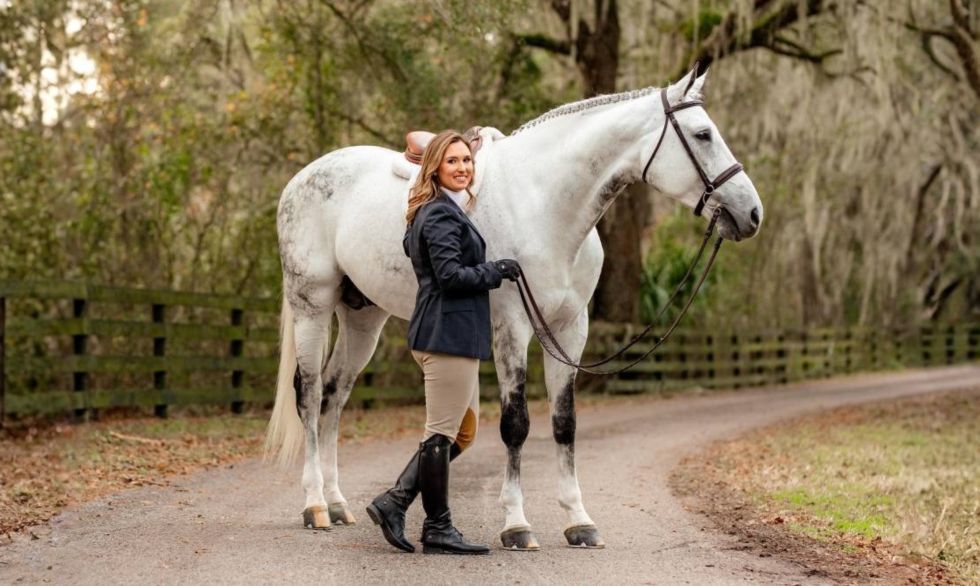Preparing for the Winter Show Circuit and Staying Compliant with USEF Drug Rules
With the winter show circuit just around the corner, now is the time to revisit the United States Equestrian Federation’s (USEF) Drugs & Medications rules and ensure your barn is compliant before the winter show season begins.
On November 3, 2025, USEF hosted a Drugs & Medications webinar featuring Dr. Stephen Schumacher, Chief Veterinary Officer for USEF, and Dr. Trisha Dowling, Veterinary Pharmacologist and Professor at the University of Saskatchewan, Western College of Veterinary Medicine. The discussion offered practical insights for riders, trainers, and owners navigating the evolving landscape of equine medication control.
Understanding USEF Drug Tests
The laboratories that USEF utilizes have the capability to detect hundreds, even thousands, of substances using advanced testing platforms. Since most medications are broken down in the horse’s body, laboratories often detect metabolites (the chemical markers left behind after a drug is processed) rather than the original substance itself. With testing technology now more sensitive than ever, trace detections can occur long after a medication was given.
Dr. Schumacher explained that many USEF drug tests are qualitative, meaning the laboratory confirms whether a substance is present, not necessarily how much. Only certain laboratories are equipped and accredited to perform quantitative testing, which requires specialized calibration equipment and validation. Because of this, USEF reports specific concentration levels only for a limited list of non-steroidal anti-inflammatory drugs (NSAIDs), along with dexamethasone and methocarbamol. For most other findings, the result is simply the presence or absence of the substance.
Hair Testing and How It’s Used
USEF recently introduced hair testing after reports of euthanasia-solution misuse (pentobarbital and phenytoin). Hair samples allow regulators to detect prohibited drugs over a longer window of time, even when traditional testing might miss them. Hair testing provides a longer detection window than urine or blood tests, allowing regulators to identify serious violations involving long-acting prohibited substances that might otherwise go undetected. Samples approximately the diameter of a pencil are pulled from the underside of the mane or tail. The process is designed to be minimally stressful, with combs disinfected before and after each use. Importantly, hair testing targets only a limited group of truly prohibited substances, not routine therapeutic medications.
Supplements and the Risks of Positive Tests
The panel devoted considerable time to discussing supplements, which are one of the leading causes of accidental rule violations. Dr. Trisha Dowling offered a notably candid perspective on their use, suggesting that most horses simply don’t need them. She explained that major feed companies already employ PhD-level equine nutritionists and invest heavily in research to create diets that meet the complete nutritional needs of sport horses. In her view, those formulations make most additional supplements unnecessary. Dr. Dowling shared that in her own program, the only supplement she routinely uses is electrolytes for endurance horses.
Unlike approved veterinary or human drugs, identified by NADA, ANADA, or INAD numbers, supplements are not subject to the same regulatory scrutiny as drugs. Labels can change without notice, and “proprietary blends” may conceal ingredients that can unintentionally trigger positive drug tests. The takeaway was clear: USEF does not endorse supplements and supplements should be supplied to horses with careful consideration and at owners and trainers risk.
Botanicals & “Natural” Products
The webinar also addressed the increasing use of herbal products in sport horses. Substances like ashwagandha and valerian root are prohibited due to their sedative or central-nervous-system effects. Dr. Dowling emphasized that “natural” does not mean safe—or legal—and noted that some herbs may even pose risks such as liver toxicity. Species differences further complicate safety, as horses metabolize substances differently than humans or other animals. An additional consideration was that these “natural” products aimed at calming horses go against the spirit of fair competition.
Testing Logistics & Results
All collections are performed by licensed veterinarians and trained technicians who do not treat horses at the event. Competitors can check the status of their test samples through USEF’s online barcode lookup system, which indicates whether a result is “cleared” or “pending.” Per Dr. Schumacher, USEF employs both random and placings-based sampling, prioritizing top finishers whenever possible.
Why Legal Guidance Matters
A rule violation can have lasting consequences beyond forfeited ribbons and prize money. A violation can affect a competitor’s professional standing and reputation within the sport. Riders, trainers, and owners facing a positive test result should seek guidance from an equine attorney familiar with USEF regulations. As the winter show season approaches, taking time to review your horses’ medication protocols, verify supplement labels, and ensure proper recordkeeping remains the best defense against unintentional rule violations.
*** Kimbrell J. Hines is an active equestrian and an equine attorney with Turkel Cuva Barrios, P.A., d/b/a Turkel • Cuva • Barrios • Guerra. Kimbrell has extensive knowledge of the nuances of the legal and business challenges that horse owners and enthusiasts experience in the equine industry. Kimbrell represents clients in matters including injuries to horses and riders, sale and purchase contracts, leases and boarding agreements, USEF & FEI compliance and responses, and claims concerning professionals providing equine-related services. Kimbrell obtained her law degree and bachelor’s degree from the University of Florida, where she competed for the University of Florida Equestrian Team. She also has a Master of Science in Human Resource Management from the University of Tennessee. Kimbrell may be reached at khines@tcb-law.com or 813-834-9191.
*** This article is provided as a guide for educational purposes only. It is not intended to serve as legal advice and should not be used as a substitute for consultation with an attorney.
